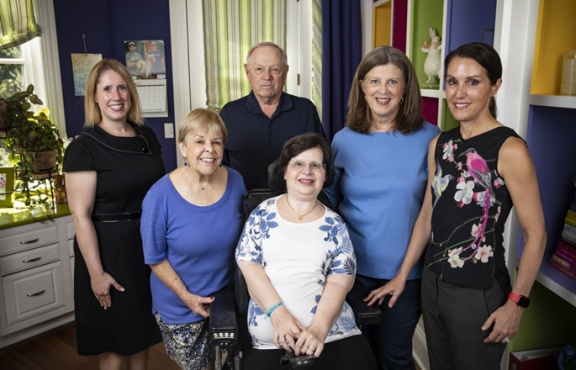A multisite, international phase 2 trial evaluating the investigational drug garetosmab has shown that it reduced soft-tissue flare-ups significantly and prevented new areas of abnormal bone formation in patients with fibrodysplasia ossificans progressiva (FOP).
Kathryn Dahir, MD, professor of Medicine in the Division of Endocrinology and Diabetes, served as the principal investigator at Vanderbilt University Medical Center for the randomized, double-blinded, placebo-controlled trial to study the efficacy and safety of garetosmab, a human monoclonal antibody. Garetosmab binds to activin A, a protein in the body related to growth, and blocks its ability to activate FOP-mutant ACVR1.
The findings, published this week in the journal Nature Medicine, give hope to individuals with the rare disease that effects 1 out of 1 million individuals in the United States. FOP is caused by mutations in the gene ACVR1 which lead to abnormal formation of bone outside of the normal skeleton in soft tissue including muscles, tendons and ligaments throughout the body.
